By Kate Stockrahm
Catholic Charities of Shiawassee and Genesee Counties has received a $500,000 grant from the Charles Stewart Mott Foundation to support the creation of a housing development for local veterans.
The overall $3.5 million development, called Sacred Heart Village, will serve as transitional housing for area veterans. It promises trauma-informed design, like clear lines of sight, no shared walls, and a bathroom door that does not extend to the floor in each home, and is slated to start construction at 719 E. Moore St. in Flint, Mich. this summer.
According to a Feb. 8, 2024 press release, the village will consist of 24 to 26 bungalows ranging from 280 to about 500 square feet each. All will be compliant with the Americans with Disabilities Act and eight will be barrier-free.
The release also notes that the village will feature a community resource center to provide a range of health care, educational, and other supportive services and programs.
“It’s a transitional, integrated, trauma-informed approach for veterans to establish stability and learn the skills necessary to live independently and integrate into society,” said Katie Baxter, president and CEO of Catholic Charities. “We want them to be successful, independent and achieve their life goals.”
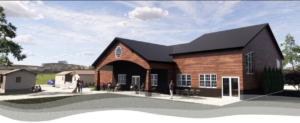
A rendering of Sacred Heart Village’s coming Veteran Resource Center. The village will serve as a transitional housing development for unhoused veterans and is slated to break ground at 719 E. Moore St. in Flint, Mich. in the summer of 2024. (Image courtesy Sedgewick + Ferweda Architects and Catholic Charities)
Lance Corporal Daniel Vela, a member of the development’s planning committee, said he was grateful Catholic Charities asked for veterans’ input on the project.
“I’m thankful Catholic Charities is getting veterans’ perspectives on this to make sure they don’t fall into stereotypical views of veterans. Every veteran is different, and we can’t lose sight of the person,” said Vela, a Purple Heart recipient who served in the U.S. Marine Corps in Iraq and Afghanistan. “I felt heard, and they asked a lot of good questions.”
Vela, who was born and raised in Flint, added that coming home to civilian life was difficult even with a strong support system. He said he hopes the village’s programming will be a positive step forward to support veterans wherever they are in their journey.
“Let’s introduce them to everyone they need to meet to get started on the right foot and prevent them from ending up on the streets in the first place,” Vela said. “This new village just made sense.”
Gerri Lajewski, director of development for Catholic Charities, said that when the nonprofit started working with different veteran organizations, staff realized there is a “huge gap” in services depending on a person’s discharge status.
“This gap is caused because, if you do not meet the qualifications per the government agency, then you do not get benefits. So, someone can serve for years, but if their discharge status is not what is considered ‘honorable,’ then they don’t have those benefits,” she said.
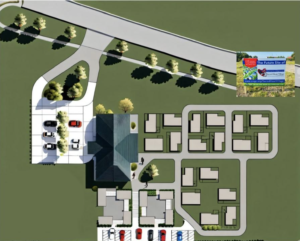
An aerial rendering of Sacred Heart Village, a transitional housing development for unhoused veterans slated to break ground at 719 E. Moore St. in Flint, Mich. in the summer of 2024. (Image courtesy Sedgewick + Ferweda Architects and Catholic Charities)
Sacred Heart Village’s first phase of construction is anticipated to wrap in January 2025. That phase will include the village’s community resource center and 12-14 bungalows. The remaining 12 bungalows are scheduled for a target completion date of summer 2025.
According to U.S. Census data, Michigan is home to around 460,000 veterans. As of fall 2023, the Michigan Veterans Affairs Agency (MVAA) cited that there are over 2,400 homeless veterans in the state.
Baxter said she hopes Catholic Charities’ coming development will serve as a solution for unhoused veterans and their communities beyond Flint and Genesee County.
“With Sacred Heart Village, we’re not just providing housing. We’re creating a model for community support and engagement that can be replicated nationwide,” she said. “This grant enables us to take a significant step towards reducing veteran homelessness in our community and establishing a sustainable model for future programming.”

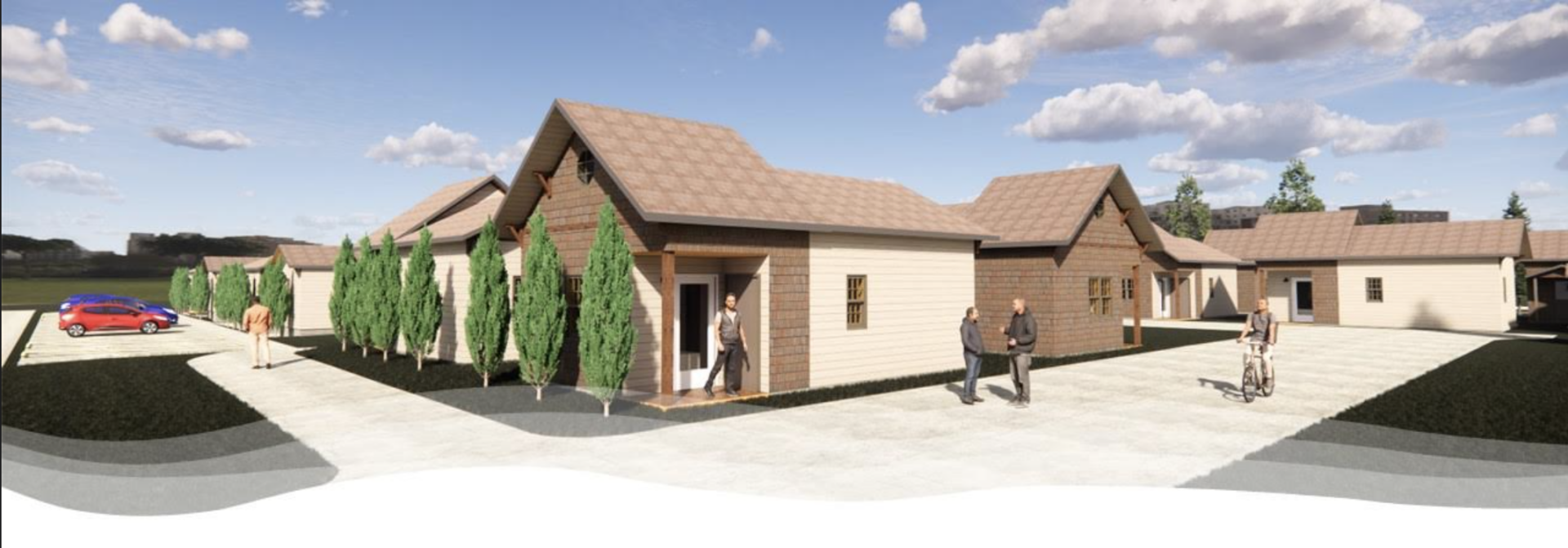
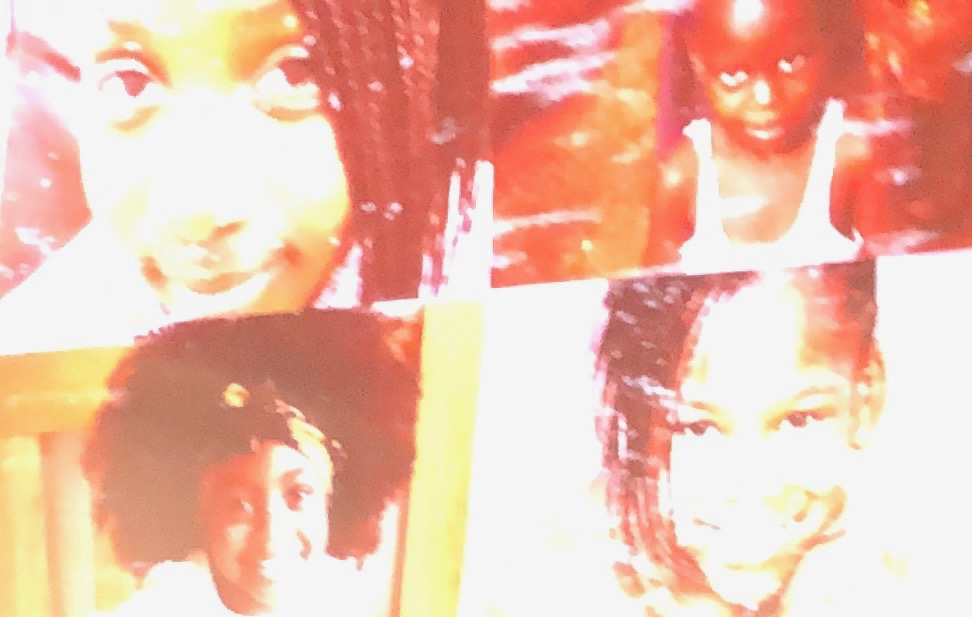
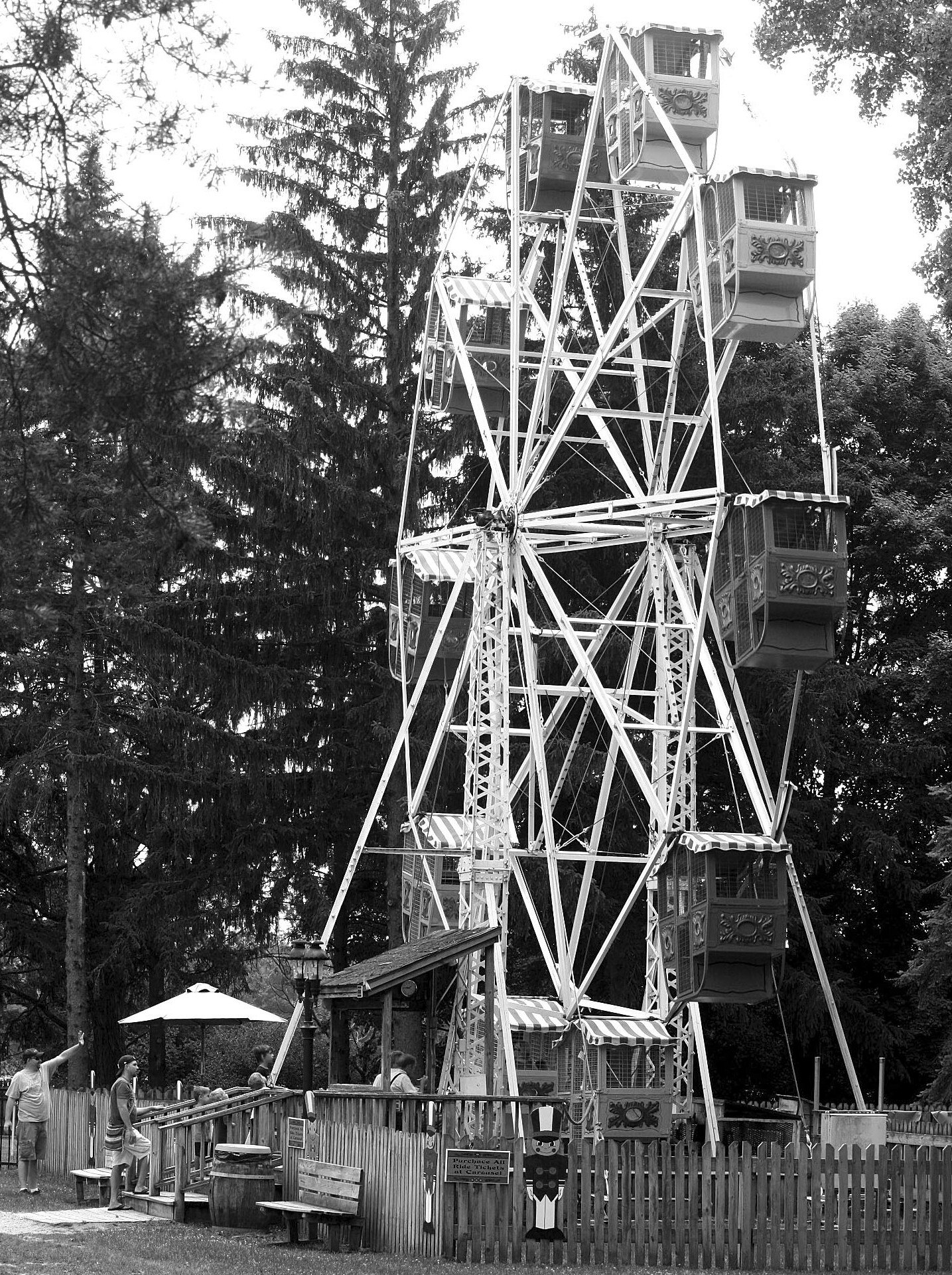




You must be logged in to post a comment.